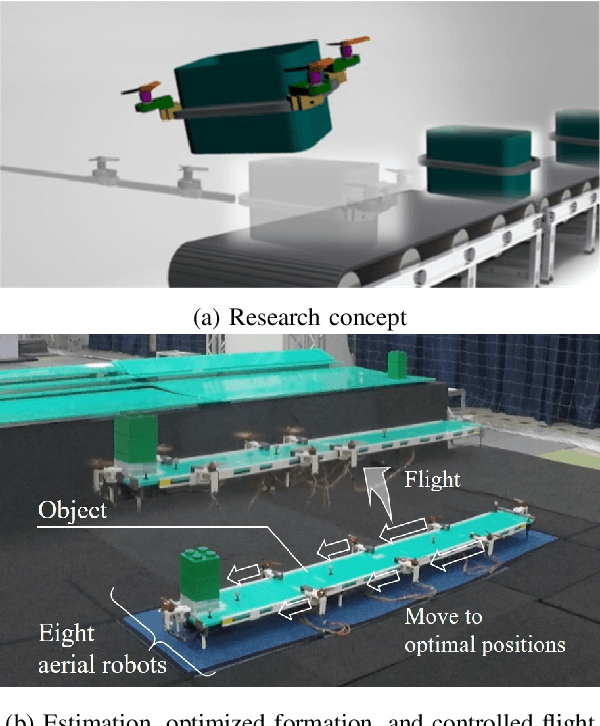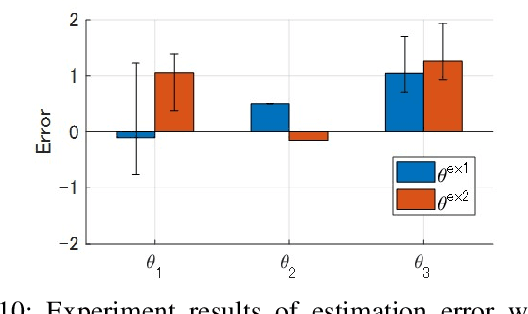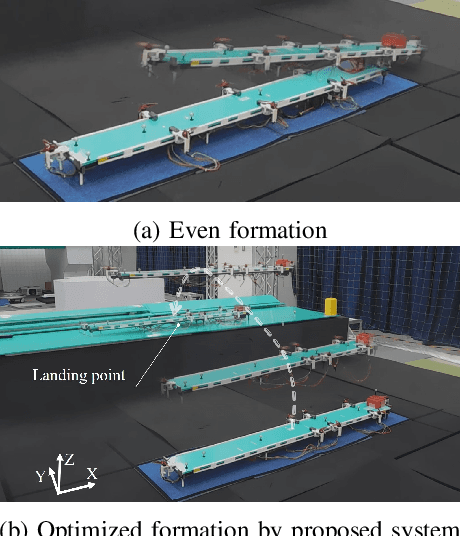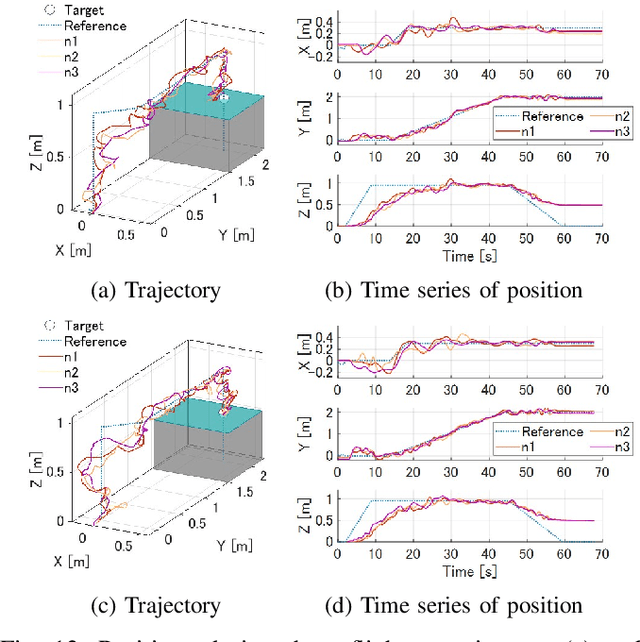Autonomous Cooperative Transportation System involving Multi-Aerial Robots with Variable Attachment Mechanism
Paper and Code
Sep 22, 2021



Cooperative transportation by multi-aerial robots has the potential to support various payloads and improve failsafe against dropping. Furthermore, changing the attachment positions of robots according payload characteristics increases the stability of transportation. However, there are almost no transportation systems capable of scaling to the payload weight and size and changing the optimal attachment positions. To address this issue, we propose a cooperative transportation system comprising autonomously executable software and suitable hardware, covering the entire process, from pre-takeoff setting to controlled flight. The proposed system decides the formation of the attachment positions by prioritizing controllability based on the center of gravity obtained from Bayesian estimations with robot pairs. We investigated the cooperative transportation of an unknown payload larger than that of whole carrier robots through numerical simulations. Furthermore, we performed cooperative transportation of an unknown payload (with a weight of about 3.2 kg and maximum length of 1.76 m) using eight robots. The proposed system was found to be versatile with regard to handling unknown payloads with different shapes and center-of-gravity positions.
 Add to Chrome
Add to Chrome Add to Firefox
Add to Firefox Add to Edge
Add to Edge